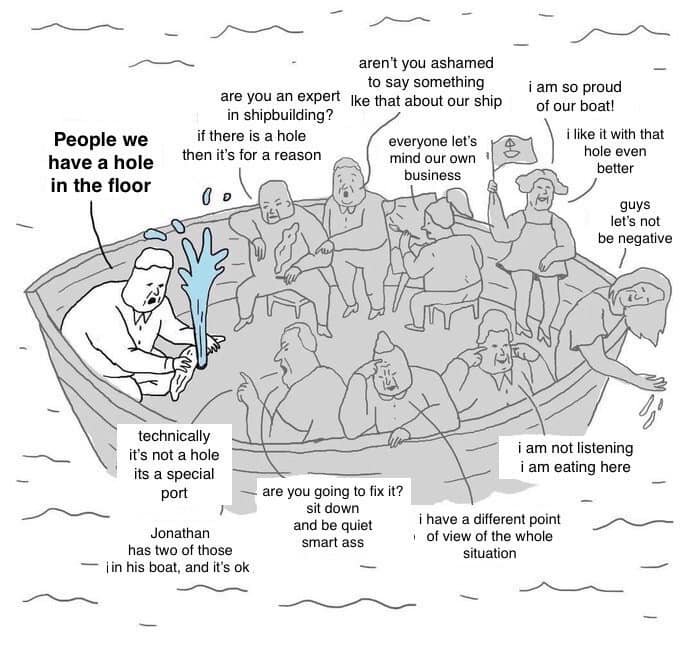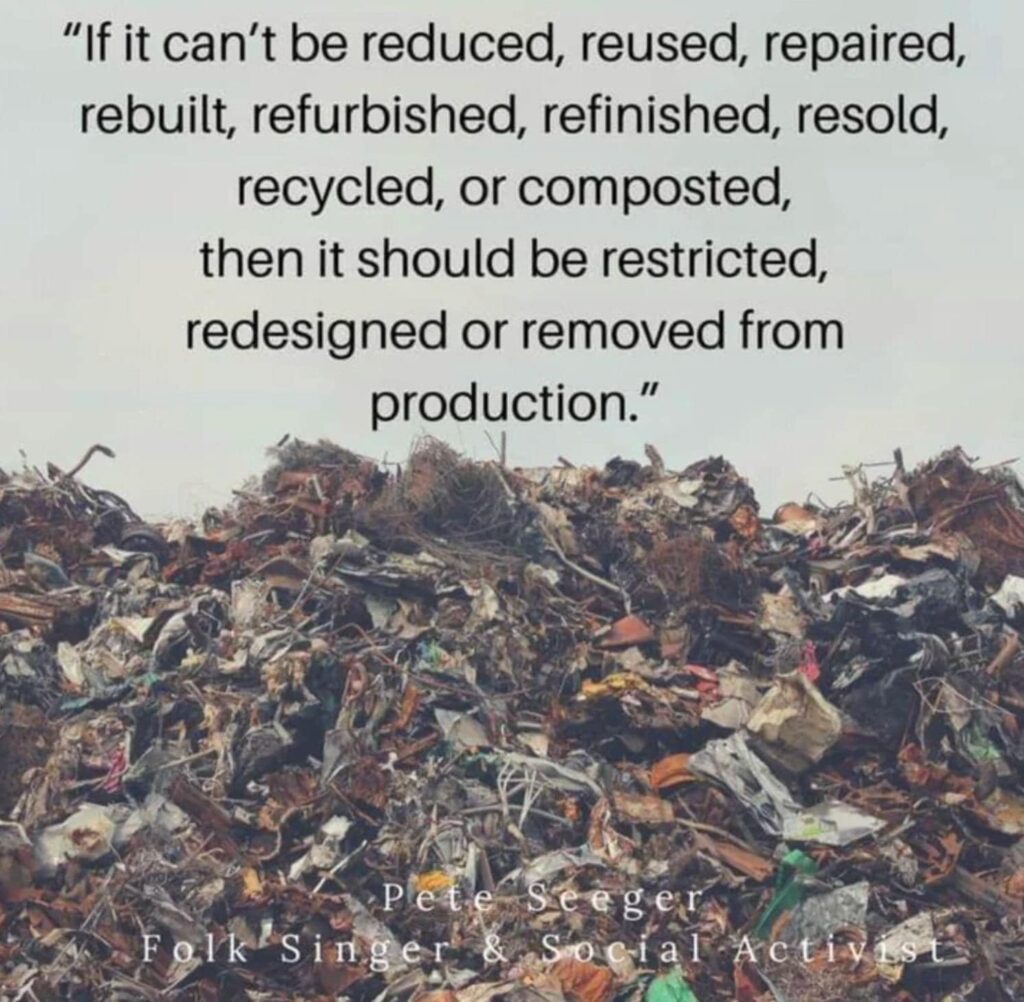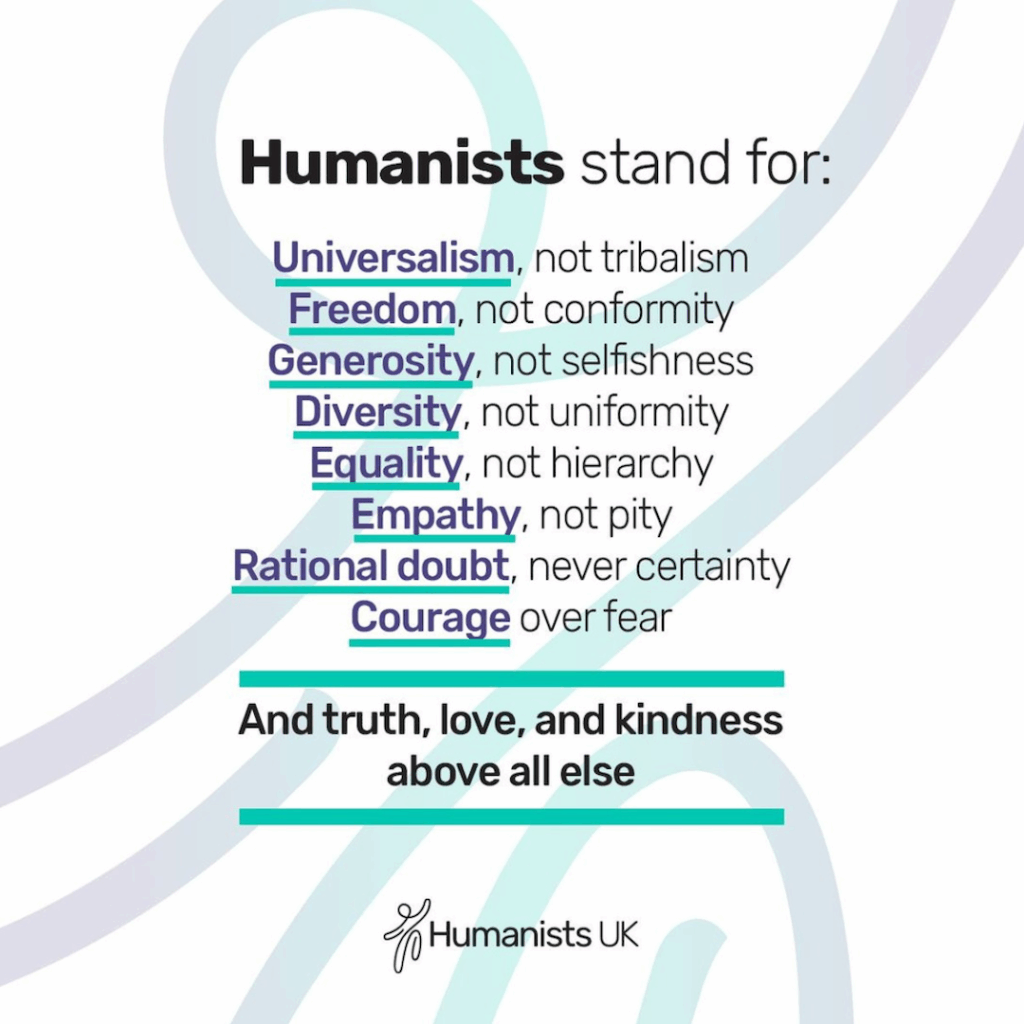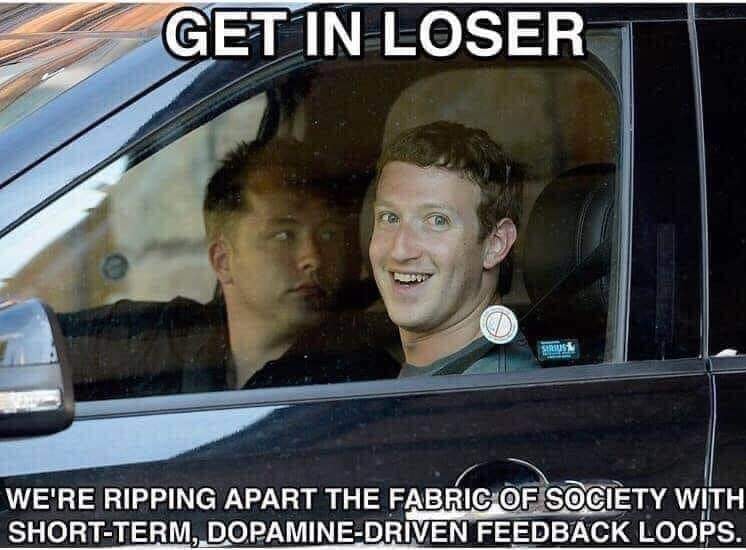
When alternatives bridge to #mainstreaming in our #openweb movement and the broader #dotcons landscape, we find ourselves confronting a troubling dynamic—a rise in prat’ish behaviour, characterized by ego-driven conflict, divisiveness, and resistance to meaningful change, this threatens to undermine the real progress we urgently need.
At the heart of this issue is the 40 years of #deathcult mentality—a mindset defined by #neoliberal values, the relentless pursuit of profit, and a shallow adherence to the mess of the current status quo. This mentality permeates not just the big tech giants, but also, unfortunately, seeps into our own #4opens movements, like the #fediverse, when we become entangled in reproducing their “common sense” paths.
The #deathcult is a useful metaphor to use, representing a blind adherence to systems that are actively destroying our planet, eroding our communities, and undermining our humanistic values. When we speak of current #mainstreaming as a killer problem, we are talking about this neoliberalism, and that while this is not a part of our culture, it feeds into it. It’s not only a problem with “them”—the dotcons—but is also reflected within our movements. Even in the openweb and #fediverse, spaces built to resist such values, we see tendencies toward this #mainstreaming creeping in, the huge influxes of liberals, bring the replications of patterns of hierarchy, exclusion, and competition, even as they claim to oppose them.
We need practical steps to mediate this and move to a constructive path:
- Embrace radical honesty and reflection, we need to start with radical honesty about our own roles in perpetuating the problems we face. Are we unconsciously replicating the patterns of the #dotcons? Are we engaging in excluding grassroots native paths by that prioritize ego over community? Reflecting on these questions is crucial.
- Promote transparent and open dialogue by creating spaces both online and offline for open and honest communication, like the #OMN. We need to move away from secretive, behind-the-scenes decisions and instead encourage a culture of transparency where disagreements are aired constructively. Use the #4opens (Open Data, Open Source, Open Standards, and Open Process) as guiding principles helps us pick better tools for this.
- Encourage diversity of thought and approach, let’s challenge the #mainstreaming impulse by embracing a diversity of thought and approaches. Different strategies and solutions flourish, even if they seem unconventional or counter to prevailing norms. On the progressive path, encourage people to experiment, fail, and try again without fear of ridicule or exclusion.
- Use shovels and compost as metaphors for action, instead of shovelling dirt on each other’s efforts, we need to shovel it into the compost heap—taking what doesn’t work or what has failed and turning it into fertile ground for new growth. This means consciously choosing to see conflict and disagreement as opportunities for transformation rather than threats.
- Reject the #deathcult mentality, that is deeply ingrained but not unchangeable. Reject the idea that we must always be in competition, that progress is a zero-sum game, or that only the fittest deserve to survive. Instead, let’s balance cooperation, mutual aid, and community over profit, power, and exclusion.
- Build real alternatives, not only #FOSS copies, many of our attempts to build alternatives have, so far, merely replicated the models of the #dotcons. It’s time to balance this copying of systems we oppose and instead start to create native alternatives, there are meany good histories we can build from, an example #indymediaback is more truly embodied in the principles we value.

Composting this mess, we need a way to mediate the prat’ish behavior and the pervasive #deathcult mentality. We cannot afford to be the ones saying, “Now is not the time.” To those who say this, I say: Get off your knees, lift your head, and look at the mess we have made. It’s time to confront this problem head-on and work hard to compost it.
If we are to get anywhere with the messy #openweb reboot we need to be nice when calling prats, prats, do it a lot, but try and keep this #fluffy
UPDATE: this is a difficult path, will use this space to LINK to the problem resources:
https://fediverse-governance.github.io/images/fediverse-governance.pdf this report is focused on #NGO #fashernista and to a lesser extent #geekproblm, the is useful information from this limited view path.
https://infrastructureinsights.fund the outreach text on this is nice, but look at who makes up the Review Board and you see the funding at best is poured down the drain, and, at worst, will misshape the #openweb native path.
And meany more, to help post links in comment for me to add and comment on, thanks.





